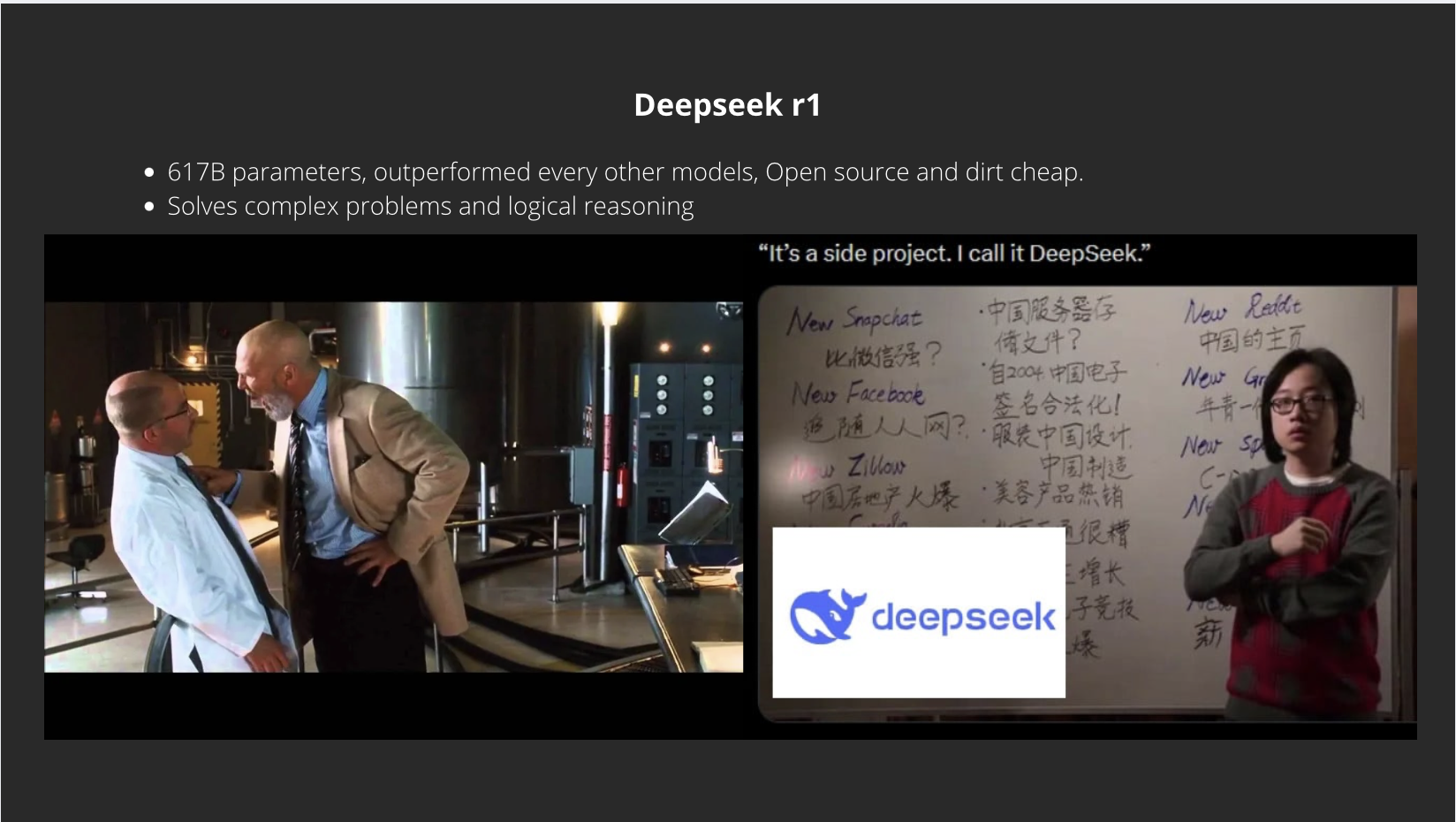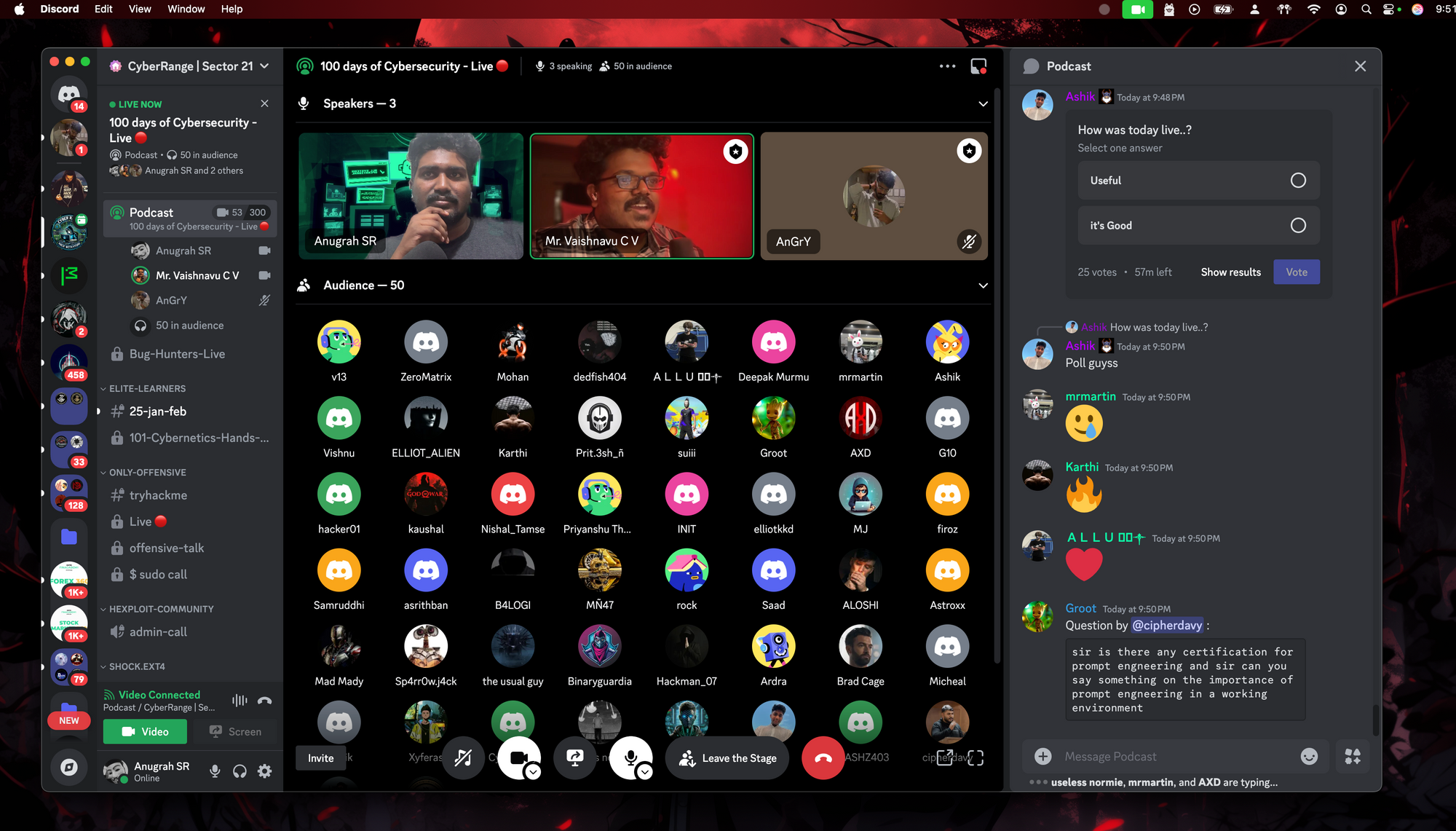TLDR;
A Full-Circle Moment: Speaking on AI & LLM Security
Last day, I had the honor of speaking at CyberRange’s #100DaysOfCybersecurity Challenge—an initiative that mirrors the very program that kickstarted my own cybersecurity career years ago. The topic? AI & LLM Security, a field that’s as thrilling as it is critical in today’s rapidly evolving tech landscape.
As I shared insights on securing AI-driven systems and dissected real-world vulnerabilities, I couldn’t help but reflect on my unconventional journey into cybersecurity. Here’s a recap of the session, sprinkled with personal lessons and a nod to the power of relentless learning.
Why AI & LLM Security Matters Now
Artificial Intelligence (AI) and Large Language Models (LLMs) are reshaping industries, but their adoption brings unprecedented risks. During the session, I highlighted:
- The Double-Edged Sword of AI: While AI automates tasks and enhances decision-making, its complexity creates blind spots. Attackers now exploit AI models through adversarial attacks, data poisoning, and prompt injection.
- Real-World Vulnerabilities: Case studies from my work showed how poorly secured AI APIs and over-trusted LLM outputs led to data leaks and system compromises.
- Responsible AI Practices: Emphasized frameworks for ethical AI deployment, including rigorous testing, access controls, and transparency in model behavior.

The audience’s sharp questions—like “How do we balance innovation with security in fast-paced AI teams?”—sparked lively discussions, proving just how hungry the community is for actionable solutions.
My Unlikely Path: From Biological Science to Cybersecurity
If you’d told me during my Master’s in Biological Science that I’d one day hack (AI) systems for a living, I’d have laughed. Biology taught me precision, critical thinking, and the beauty of interconnected systems—skills that surprisingly translate well to cybersecurity.
But the real turning point came in 2020, when I stumbled upon a #100DaysOfCybersecurity challenge. Completing it gave me the foundation to pivot careers, and today, standing on the other side as a speaker, I felt a profound sense of nostalgia.
3 Lessons That Shaped My Transition:
- Learn Daily, Even If It’s Small: Cybersecurity evolves hourly. Dedicate 30 minutes daily to reading blogs (like The Hacker News), testing tools, or dissecting CVEs.
- Network Relentlessly: My first mentorship, freelance gig, internship and full time job opportunity all came from LinkedIn connections and local meetups.
- Embrace the “Beginner’s Mindset”: Transitioning fields is humbling. Ask questions, break things in labs, and don’t fear gaps in knowledge—they’re opportunities.
Why Challenges Like #100DaysOfCybersecurity Are Game-Changers
Programs like CyberRange’s challenge do more than teach technical skills—they build habits and communities. For newcomers, here’s my advice:
- Start with “Why”: Passion fuels persistence. Whether it’s securing AI or tackling ransomware, find your niche and dive deep.
- Leverage Open-Source Tools: Platforms like Hack The Box or TryHackMe offer hands-on labs to practice ethically.
- Celebrate Small Wins: Completing Day 16 of a challenge might seem minor, but consistency compounds into expertise.

Looking Ahead: Securing the Future of AI
The session reinforced my belief that AI security isn’t just a technical problem—it’s a collaborative mission. As I continue working with organizations like HackerOne and The SecOps Group, I’m optimistic about innovations like:
- AI-Powered Threat Hunting: Using ML to detect anomalies in real-time.
- Ethical Red Teaming for AI: Stress-testing models as rigorously as we do networks.
- Global AI Security Standards: Bridging the gap between developers and defenders.
Join the Conversation
To the 100+ attendees who joined the session: Thank you for your energy and curiosity! To readers here—what’s your take on AI security? How do you stay ahead in this field? Let’s chat in the comments!
🔗 Missed the session? Catch upcoming #100DaysOfCybersecurity talks here: CyberRange Events


